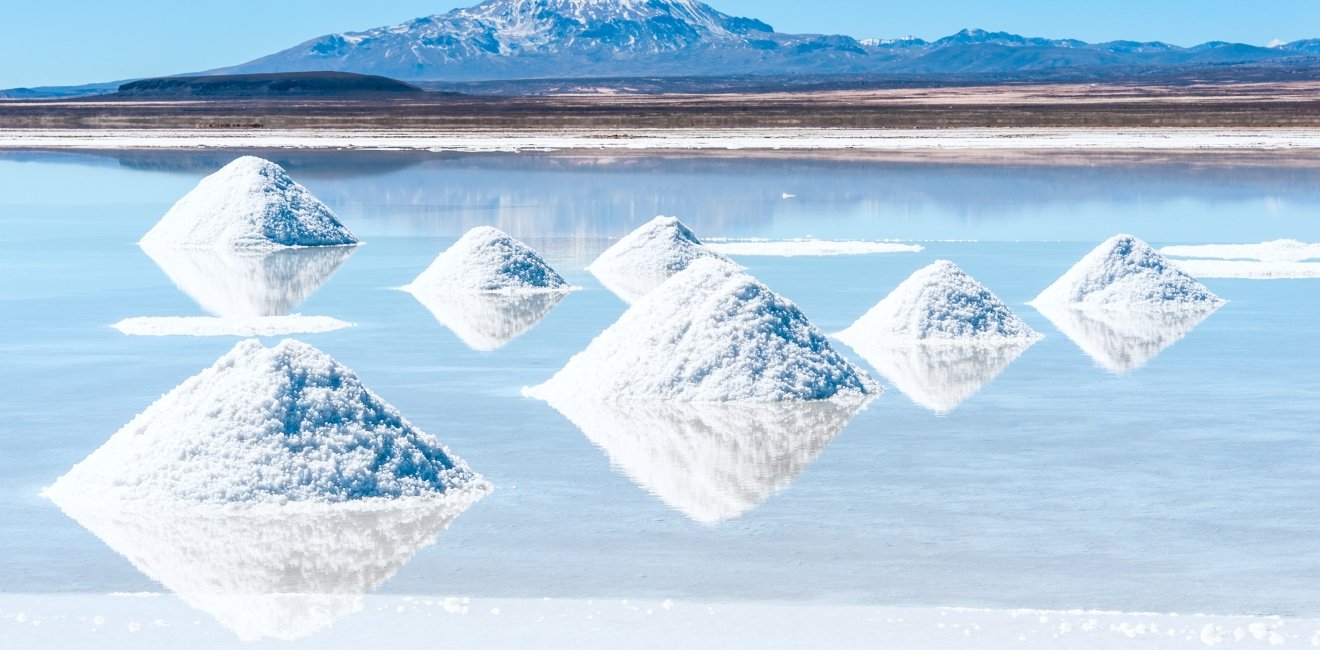
A blog of the Latin America Program
Bolivia is home to the world’s largest lithium resources. Together with Chile and Argentina, the so-called “lithium triangle” holds almost 60 percent of the planet’s known lithium deposits, according to the U.S. Geological Survey. But while Chile and Argentina are among the top global producers, alongside Australia and China, Bolivia has yet to produce lithium in commercial quantities.
For two decades, successive governments have tried to jump-start Bolivia’s lithium industry, attempting both pro-market and statist strategies, with unimpressive results. Efforts at privatizing the industry in the 1990s failed. So did attempts by longtime President Evo Morales to expand the government’s role in the industry through a state-owned lithium company and to promote local production of batteries and electric vehicles.
President Luis Arce, Morales’s former finance minister, has made promising moves since taking office in 2020. He hired a leading advisory firm, Benchmark Mineral Intelligence, to help design a lithium strategy for Bolivia. He also launched a bidding round to invite private firms to test a new technology, direct lithium extraction (DLE), in Bolivia’s technically challenging salt flats. Although still being studied, DLE appears to develop lithium from brine faster than through standard evaporation, and it is more environmentally friendly.
Q: Bolivia has the potential to become a lithium powerhouse. Yet the country has repeatedly failed to adopt the policies needed to develop its lithium resources. What must change for Bolivia to play a major role in meeting exploding global demand for lithium for use in batteries for electric vehicles and energy storage?
A: The time has come for Bolivia to begin thinking seriously about becoming a gravitational force in the global lithium industry. The fact that after almost 14 years Bolivia has not been able to produce lithium on a commercial scale shows that the strategic project has essentially failed, despite all the rhetoric from the various administrations since 2008. This proves that the lithium policy applied all these years has turned out to be inadequate. As is well known, Law 928, which created Yacimientos de Litio Bolivianos (YLB), establishes that the extraction and processing of lithium must be carried out 100 percent by the state, leaving only the industrialization of lithium open to private sector and foreign participation. This restrictive policy, together with the lack of leadership, qualified human resources and technology in a non-traditional industry, has led to a considerable waste of time and money. What Bolivia needs is a complete reengineering of the lithium industry.
Q: President Arce has talked about commercial lithium output as soon as 2025. That seems optimistic, considering the typical timeline for lithium projects. For example, the Cauchari-Olaroz project in Argentina was launched in 2009 and is not expected to produce lithium for export until 2022. Will DLE technology help Bolivia move much faster and become a major lithium producer? After all, lithium production in Bolivia has so far been more geologically complex than in Argentina and Chile.
A: As I have been arguing since at least 2010, to be competitive, Bolivia needs to apply technologies that go beyond the use of solar evaporation ponds. The reasons are simple: Relatively low solar evaporation rates and relatively high rainfall in Uyuni in comparison with salt flats in Chile and Argentina. The recent decision by the Arce administration to invite specialized companies to test Bolivian brines with DLE technologies was correct. However, the fact that these technologies are not off-the-shelf makes things more complex, given restrictions on the role private companies can play in the production and processing of lithium in Bolivia. It might have been wiser to change the law first and then proceed to international bidding. Moreover, of the eight specialized companies that qualified to bid, only four had any experience with lithium extraction, only two had the minimum three years of experience with DLE methods and none had used these technologies to produce lithium on an industrial scale.
The government seems to regard DLE as some kind of magic that will automatically result in thousands of metric tons of lithium carbonate equivalent (LCE) produced and sold. However, even if Bolivia ends up selecting the best firms to deploy these new methods of production in the three most important salt flats in the country, there is no assurance that any of them will be able to help YLB reach industrial levels of production of quality LCE in the short term.
Q: There has historically been significant opposition to mining in Bolivia, particularly from communities in mineral-rich Potosí. Bolivia has a well-organized and active civil society that has toppled presidents and blocked private mining developments. You come from Potosí, which is rich in minerals but one of the poorest regions in Bolivia. Why is there so much opposition to mining, including for lithium? What steps could the government and mining companies take to win local support?
A: Potosí has many reasons to be suspicious of the government’s handling of the lithium industry. After all, it was a previous government of the same political party that decided to come to terms with ACI Systems, from Germany, under completely disadvantageous conditions both for Potosí and Bolivia. The contract between ACI Systems and YLB, signed in 2018, was financially disadvantageous for YLB, involved no transfer of technology and offered no royalties for Potosí. The government needs to promote a sincere dialogue with Potosí and the rest of the country to design a new lithium law that is not only fair to the region where most lithium is located, but also beneficial to the country as a whole.
Q: South America’s lithium producing countries have little coordination. Do you see a case for a more regional approach to lithium production and processing? Might regional cooperation also create opportunities to move up the lithium value chain, including the manufacturing of batteries and perhaps electric vehicles? All three “lithium triangle” governments have expressed interest in doing so, but there is great skepticism about the economic logic and their technological knowhow.
A: I am convinced that to move up the lithium value chain, lithium producing countries need to go beyond their own borders, and beyond lithium. First, not even the bigger country of Argentina has a large enough market to implement on its own a competitive lithium battery and electric vehicle manufacturing industry, let alone the other prerequisites, such as technology, qualified human resources and the natural resources needed to produce those final goods. Second, since more than 40 different chemical elements are required to build lithium batteries and electric vehicles, no single country is capable of managing this colossal endeavor. The good news is that all of those materials can be found in a select group of South American countries in quantities and qualities necessary to outcompete any other region in the world. Of course, one country can always import the needed materials, but in times of paradigmatic shifts such as the ones we are experiencing today, securing critical materials has become one of the most difficult tasks even for the largest and most powerful electric vehicle and battery makers on the planet.
My proposal can be summarized as follows: South American mining and manufacturing companies, primarily from Argentina, Bolivia, Brazil, Chile, Colombia and Peru, should establish a strategic alliance, not to control the price of lithium and other minerals, but to develop their economies through the creation of a lithium battery and electric vehicle hub for the Latin American and North American markets. This would most likely require an international association with the best battery and electric vehicle makers in the world to produce the best lithium batteries and electric vehicle on earth.
Author

Independent Energy Expert, Former Jennings Randolph Senior Fellow at the U.S. Institute of Peace

Latin America Program
The Wilson Center’s prestigious Latin America Program provides non-partisan expertise to a broad community of decision makers in the United States and Latin America on critical policy issues facing the Hemisphere. The Program provides insightful and actionable research for policymakers, private sector leaders, journalists, and public intellectuals in the United States and Latin America. To bridge the gap between scholarship and policy action, it fosters new inquiry, sponsors high-level public and private meetings among multiple stakeholders, and explores policy options to improve outcomes for citizens throughout the Americas. Drawing on the Wilson Center’s strength as the nation’s key non-partisan policy forum, the Program serves as a trusted source of analysis and a vital point of contact between the worlds of scholarship and action. Read more

Explore More in Weekly Asado
Browse Weekly Asado
Dengue Haunts South America’s Summers

Lessons from Costa Rica’s Economic Transformation

Women and Latin America’s Digital Revolution

